Ditapis dengan
E-book Denken over geloven : Van moderne zekerheid tot agnostische terughoude…
How to think philosophically about religion? The separation of church and state takes form in the nineteenth century. In public universities in the Netherlands, systematic, church-related theology is replaced by philosophy of religion. As a window on academic thinking about faith, Willem B. Drees, Leiden University's last professor of philosophy of religion, reads the work of his predecessors. …
- Edisi
- -
- ISBN/ISSN
- 9789464561999
- Deskripsi Fisik
- 232 hlm
- Judul Seri
- -
- No. Panggil
- 210.1 DRE d
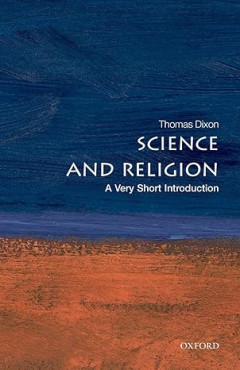
E-book Science and Religion: A Very Short Introduction
The debate between science and religion is never out of the news: emotions run high, fuelled by polemical bestsellers like The God Delusion and, at the other end of the spectrum, high-profile campaigns to teach "Intelligent Design" in schools. Yet there is much more to the debate than the clash of these extremes. As Thomas Dixon shows in this balanced and thought-provoking introduction, a whole…
- Edisi
- -
- ISBN/ISSN
- 9780199295517
- Deskripsi Fisik
- 169 halaman
- Judul Seri
- -
- No. Panggil
- 215 DIX s
E-book Love in the Time of Scholarship : The Bhagavata Purana in Indian Intel…
If you walk into the Ra?jara?j??varan ?iva temple in Ta?ipparamba, in the Ka???r district of northern Kerala, you will see many standard features: lush green lawns, old stone architecture, the occasional elephant munching on grass, low tiled roofs housing an array of deities that surround the main shrine. Having paid your respects to the various spirit…
- Edisi
- -
- ISBN/ISSN
- 9780197776636
- Deskripsi Fisik
- 257 hlm
- Judul Seri
- -
- No. Panggil
- 210.1 VEN l
E-book Cow Care in Hindu Animal Ethics
Cows—certain types ofbovinae—can evoke strong emotions among peo-ple, different emotions rooted in different worldviews. One worldview,which is arguably a galaxy of worldviews emerging over centuries in India,has come to be called “Hindu.” Some people who identify themselvesas Hindus have strong feelings about cows—feelings that tie into theirsense of conviction that cows are not just…
- Edisi
- -
- ISBN/ISSN
- 9783030284084
- Deskripsi Fisik
- 289 hlm
- Judul Seri
- -
- No. Panggil
- 210.1 VAL c

E-book Philosophie der Spiritualität = Philosophy of Spirituality
What is spirituality? What is the relationship between spirituality and religion? Are they inseparable or just coincidentally connected? Does spirituality need a reference to God or is true spirituality perhaps only possible without religion? How do different forms of spirituality affect the lives of individuals and society? This book is dedicated to these questions and thus comprehensively exp…
- Edisi
- -
- ISBN/ISSN
- 9783757401252
- Deskripsi Fisik
- 208 halaman, ilus.
- Judul Seri
- -
- No. Panggil
- 210.1 GAB p
E-book Transcendent God, Rational World: A Maturidi Theology
Ramon Harvey revisits the Muslim theologian Ab? Man??r al-M?tur?d? (d. 333/944) from Samarqand and puts his system, and that of the M?tur?d? school, into lively dialogue with modern thought.Combining rigorous study of Arabic M?tur?d? texts with insights from Husserl’s phenomenology and analytic theology, Harvey explores themes from epistemology and metaphysics to the nature of God and specifi…
- Edisi
- -
- ISBN/ISSN
- 9781474451666
- Deskripsi Fisik
- 330 halaman, ilus.
- Judul Seri
- -
- No. Panggil
- 210.1 HAR t

E-book Liberals, Conservatives, and Mavericks: On Christian Churches of Easte…
No Church is monolithic—this is the preliminary premise of this volume on the public place of religion in a representative number of post-communist countries. The studies confirm that within any religious organization we can expect to find fissures, factions, theological or ideological quarrels, and perhaps even competing interest groups, such as missionary workers, regular clergy versus secu…
- Edisi
- -
- ISBN/ISSN
- 9789633864579
- Deskripsi Fisik
- 443 halaman, ilus.
- Judul Seri
- -
- No. Panggil
- 274 CIB l
E-book The Manichaean Church at Kellis : Social Networks and Religious Identi…
These lines constitute the beginning and end of a letter, written on papyrus in a dialect of the Coptic Egyptian language and dating to the middle of the fourth century CE.2 The letter would not have been known today had it not been discovered by excavators at Ismant el-Kharab, now a sand-covered ruin in an oasis west in Egypt, once a prosperous…
- Edisi
- -
- ISBN/ISSN
- 9789004459779
- Deskripsi Fisik
- 366 hlm
- Judul Seri
- -
- No. Panggil
- 299 FIA t
E-book Religion and the Everyday Life of Manichaeans in Kellis : Beyond Light…
Papyrus letters seem to convey close and personal information, directly from the mouth (or the pen) of an ancient author. Piene’s letter to his mother Maria accentuates a vivid sense of proximity and similarity. A boy, traveling far away from his mother, expresses his affection for her in a most elegant manner. How different is he from you and me?Intimate as it may feel, this passage may also…
- Edisi
- -
- ISBN/ISSN
- 9789004510296
- Deskripsi Fisik
- 426 hlm
- Judul Seri
- -
- No. Panggil
- 299 BRA r
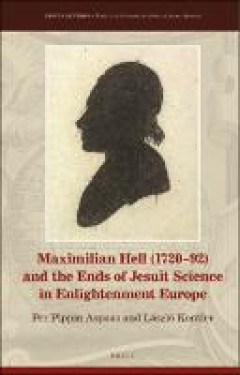
E-book Maximilian Hell (1720–92) and the Ends of Jesuit Science in Enlighte…
The Viennese Jesuit astronomer Maximilian Hell was a nodal figure in the eighteenth-century circulation of knowledge. This study of his career sheds light on the Enlightenment, Catholicism, reform in the Habsburg monarchy, and the cultivation of science in the Republic of Letters. Readership: Anyone interested in eighteenth-century Central Europe and Scandinavia, in the production and circulati…
- Edisi
- -
- ISBN/ISSN
- 490
- Deskripsi Fisik
- 490 halaman, ilus.
- Judul Seri
- -
- No. Panggil
- 215 ASP m
E-book Encyclopedia of African Religion
As the first comprehensive work to assemble ideas, concepts, discourses, and extensive essays in this vital area, the Encyclopedia of African Religion explores such topics as deities and divinities, the nature of humanity, the end of life, the conquest of fear, and the quest for attainment of harmony with nature and other humans. Editors Molefi Kete Asante and Ama Mazama include nearly 500 entr…
- Edisi
- -
- ISBN/ISSN
- 9781412936361
- Deskripsi Fisik
- 897 halaman, ilus.
- Judul Seri
- -
- No. Panggil
- 299.675 ASA e
E-book Spiritual Contestations – The Violence of Peace in South Sudan
It was late morning in May 2014, and I was sitting on the sofa in the lobby of a Radisson Blu Hotel. The sliding doors of the hotel opened onto a typical, international hotel lobby with marbled floors, a series of lifts, a spiralling staircase and clusters of small, hard, colourful square-shaped sofas and arm-chairs. If you could only see the lobby, and not the street outside, you would not hav…
- Edisi
- -
- ISBN/ISSN
- 9781800106574
- Deskripsi Fisik
- 323 hlm
- Judul Seri
- -
- No. Panggil
- 299.675 PEN s
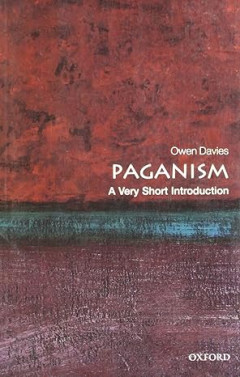
E-book Paganism: A Very Short Introduction
"Paganism" is an evocative word that even today conjures up deep-seated emotions and prejudices. Until recently, it was primarily a derogatory term used by Christians to describe the non-Christian cultures vanquished by their churches. For some it evokes images of sacrifice and barbaric behavior, while for others it symbolizes a peace-loving, nature-worshipping spiritual relationship with the e…
- Edisi
- -
- ISBN/ISSN
- 9780199235162
- Deskripsi Fisik
- 337 halaman, ilus.
- Judul Seri
- -
- No. Panggil
- 202 DAV p
E-book Reassembling Democracy : Ritual as Cultural Resource
Diverse processes of democratic participation – and exclusion – are braided with or propelled onwards by ritual acts and complexes. This volume is the result of collaborations and conversations between international researchers who have focused on the employment and deployment of those cultural resources identifiable as ‘ritual’ as pa…
- Edisi
- -
- ISBN/ISSN
- 9781350123038
- Deskripsi Fisik
- 265 hlm
- Judul Seri
- -
- No. Panggil
- 210.1 CZA r

E-book The Kingdom and the Qur’an: Translating the Holy Book of Islam in Sa…
This book presents a detailed analysis of the translation of the Qur’an in Saudi Arabia, the most important global actor in the promotion, production and dissemination of Qur’an translations. From the first attempts at translation in the mid-twentieth century to more recent state-driven efforts concerned with international impact, The Kingdom and the Qur’an adeptly elucidates the link bet…
- Edisi
- -
- ISBN/ISSN
- 9781805111764
- Deskripsi Fisik
- 228 halaman
- Judul Seri
- -
- No. Panggil
- 201.7 YAK t
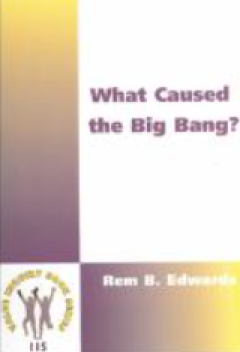
E-book What Caused the Big Bang?
Greek philosophers assumed that the world, the universe, the cosmos, or nature as a whole, existed in some form from eternity, that is, infinitely into the past, and that the basic stuff of the universe is uncreated, everlasting, self-sufficient, and indestructible. The official Christian view, by contrast, was and is that the world was created by God out ofnothing (ex nihi/o) at some point in …
- Edisi
- -
- ISBN/ISSN
- 9789004496033
- Deskripsi Fisik
- 445 hlm
- Judul Seri
- -
- No. Panggil
- 210.1 EDW w
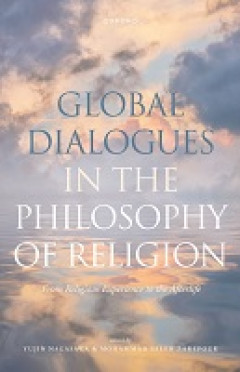
E-book Global Dialogues in the Philosophy of Religion: From Religious Experie…
The philosophy of religion is a discipline that explores a wide range of issues related to religious beliefs and practices. However, the field has historically exhibited a narrow focus, predominantly centring on the Christian tradition and lacking substantial interaction between philosophers from distinct religious and cultural backgrounds. To address this limitation, Global Dialogues in the Ph…
- Edisi
- -
- ISBN/ISSN
- 9780192865496
- Deskripsi Fisik
- 382 halaman
- Judul Seri
- -
- No. Panggil
- 210.1 NAG g
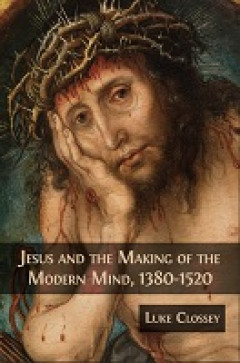
E-book Jesus and the Making of the Modern Mind, 1380-1520
For his fifteenth-century followers, Jesus was everywhere – from baptism to bloodcults to bowling. This sweeping and unconventional investigation looks at Jesus across one hundred forty years of social, cultural, and intellectual history. Mystics married him, Renaissance artists painted him in three dimensions, Muslim poets praised his life-giving breath, and Christopher (“Christ-bearing”…
- Edisi
- -
- ISBN/ISSN
- 9781800648180
- Deskripsi Fisik
- 802 halaman
- Judul Seri
- -
- No. Panggil
- 940.2 CLO j

E-book The Book of Secret Wisdom: The Prophetic Record of Human Destiny and E…
- Edisi
- -
- ISBN/ISSN
- 9785990543157
- Deskripsi Fisik
- 35 halaman
- Judul Seri
- -
- No. Panggil
- 299.0 DUS t
- Edisi
- -
- ISBN/ISSN
- 9785990543157
- Deskripsi Fisik
- 35 halaman
- Judul Seri
- -
- No. Panggil
- 299.0 DUS t
E-book Cosmic Christology in Paul and the Pauline School : Colossians and Eph…
eflections on God, Christ and cosmos in the writings of Paul and the Pauline School show that these authors were familiar with important notions from Graeco-Roman cosmology and theology. George van Kooten comes to the conclusion that they might even have adopted a way of thinking in which Judaism and Graeco-Roman cosmology were forged into a new synthesis, and Christ was viewed as a cosmic god.…
- Edisi
- -
- ISBN/ISSN
- 9783161571909
- Deskripsi Fisik
- 363 hlm
- Judul Seri
- -
- No. Panggil
- 210.1 VAN c
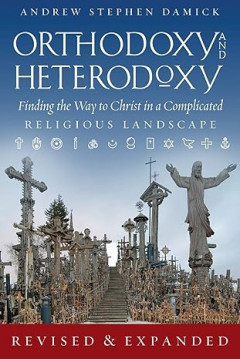
E-book Orthodoxy and Heterodoxy: Finding the Way to Christ in a Complicated R…
This new edition of the bestselling Orthodoxy & Heterodoxy is fully revised and significantly expanded. Major new features include a full chapter on Pentecostalism and the Charismatic movements, an expanded epilogue, and a new appendix ( How and Why I Became an Orthodox Christian ). More detail and more religions and movements have been included, and the book is now addressed broadly to both Or…
- Edisi
- -
- ISBN/ISSN
- 9781944967178
- Deskripsi Fisik
- 494 halaman
- Judul Seri
- -
- No. Panggil
- 230 DAM o
E-book The Legacies of Albert Schweitzer Reconsidered
There can be no ‘neutral’ Schweitzer interpretation. Schweitzer’s thoughts changed over the years, as is the case with most human beings. He was too considered to make one-sided statements. Those that may, at first sight, seem so are qualified by context. He contextualised and balanced such statements with self-critique and an appeal to our conscience.African …
- Edisi
- -
- ISBN/ISSN
- 9781928396048
- Deskripsi Fisik
- 386 hlm
- Judul Seri
- -
- No. Panggil
- 210.1 AHI t
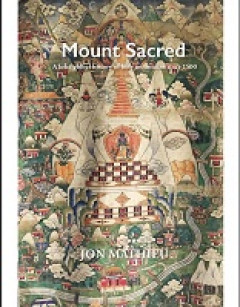
E-Book Mount Sacred: A Brief Global History of Holy Mountains Since 1500
Mount Kailash in Asia, the Black Hills in North America, Uluru in Australia: around the globe there are numerous mountains that have been and continue to be attributed sacredness. Worship of these mountains involves prayer, meditation and pilgrimage. Christianity, which for a long time showed little interest in nature, provides a foil to these practices and was one factor in the tensions that a…
- Edisi
- -
- ISBN/ISSN
- 9781912186716
- Deskripsi Fisik
- 168 halaman
- Judul Seri
- -
- No. Panggil
- 201.6 MAT m
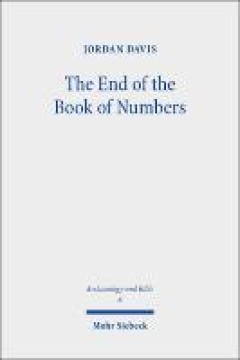
E-Book The End of the Book of Numbers: On Pentateuchal Models and Composition…
It has become increasingly clear that Numbers is the litmus test for new ideas relating to the formation of the Pentateuch. At the same time the profusion of ideas has only resulted in a corresponding lack of agreement between scholars. In the present study, Jordan Davis grants significant attention to the geographical references found at the end of the book of Numbers, combining archaeological…
- Edisi
- -
- ISBN/ISSN
- 9783161618567
- Deskripsi Fisik
- 326 halaman
- Judul Seri
- -
- No. Panggil
- 200.19 DAV t

E-Book Walking on the Pages of the Word of God: Self, Land, and Text Among Ev…
In Walking on the Pages of the Word of God Aron Engberg explores the religious language and identities of Zionist evangelical volunteer workers in contemporary Jerusalem, and their stories about the religious self, the land and the biblical text. Readership: All interested in the relationship between evangelical Christianity and Israel, and scholars interested in the relationship between Christ…
- Edisi
- -
- ISBN/ISSN
- 9789004411890
- Deskripsi Fisik
- 228 halaman
- Judul Seri
- -
- No. Panggil
- 200.1 ENG w
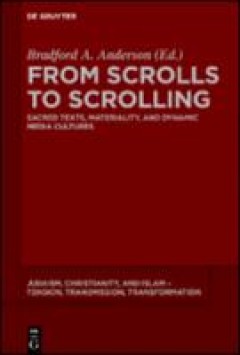
E-Book From Scrolls to Scrolling: Sacred Texts, Materiality, and Dynamic Medi…
Using the digital turn as a starting point, the essays in this volume explore the materiality of sacred texts in Judaism, Christianity, and Islam, along with transitions between various media cultures and material forms. The essays explore how material factors have shaped the production and transmission of sacred texts, as well as impacting the way in which people engage with, use, and perform …
- Edisi
- -
- ISBN/ISSN
- 9783110629590
- Deskripsi Fisik
- 327 halaman
- Judul Seri
- -
- No. Panggil
- 200.1 AND f
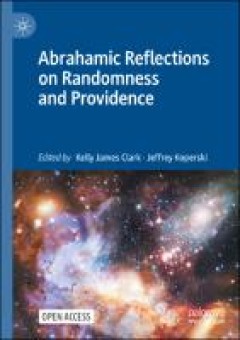
E-book Abrahamic Reflections on Randomness and Providence
This open access book addresses the question of how God can providentially govern apparently ungovernable randomness. Medieval theologians confidently held that God is provident, that is, God is the ultimate cause of or is responsible for everything that happens. However, scientific advances since the 19th century pose serious challenges to traditional views of providence. From Darwinian evolut…
- Edisi
- -
- ISBN/ISSN
- 9783030757977
- Deskripsi Fisik
- 384 halm.
- Judul Seri
- -
- No. Panggil
- 210.1
E-book The Spirit of Global Health The World Health Organization and the 'Sp…
Contrary to the widespread perception that the‘spiritual dimension’of health isprimarily related to palliative care and has emerged relatively recently within theWHO, we show in this book that its history is considerably longer and morecomplex. The emergence of a‘spiritual dimension’in WHO discourse wasconnected to aspirations for universal primary healthcare, attempts to delivera more …
- Edisi
- -
- ISBN/ISSN
- 9780192865502
- Deskripsi Fisik
- 265 hlm
- Judul Seri
- -
- No. Panggil
- 215 PEN t
E-book Atlas of Religion in China : Social and Geographical Contexts
This atlas provides a bird’s-eye view of the religious land-scape in China. It maps the officially registered venues of five major religions—Buddhism, Christianity (Protestant and Catholic), Daoism, and Islam—at the national, pro-vincial, and county levels, and draws the contours of Confucianism, folk religion, and the Mao cult. It describes the main organizations, beli…
- Edisi
- -
- ISBN/ISSN
- 9789004369900
- Deskripsi Fisik
- 260 hlm
- Judul Seri
- -
- No. Panggil
- 200.51 YAN a
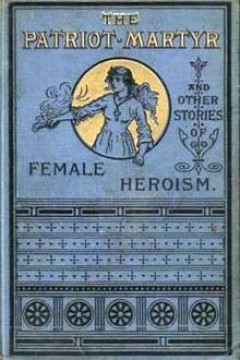
E-book Jeanne d'Arc Her Life and Death
- Edisi
- -
- ISBN/ISSN
- -
- Deskripsi Fisik
- 242 p, 1297 KB
- Judul Seri
- -
- No. Panggil
- 920 OLI j
- Edisi
- -
- ISBN/ISSN
- -
- Deskripsi Fisik
- 242 p, 1297 KB
- Judul Seri
- -
- No. Panggil
- 920 OLI j
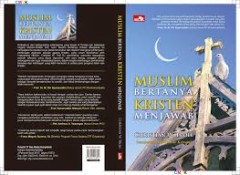
Muslim bertanya kristen menjawab = Christian responses to muslim qustions
Sebuah uraian tanya jawab teologis antara Muslim dan Kristen/Katolik, yang disusun oleh Christian W. Troll SJ sebagai hasil pengalamannya melakukan kegiatan dialog antaragama yang tak kenal lelah di Tunisia dan Jerman. Sebuah buku yang sangat cocok dibaca oleh para Pemuka Agama maupun masyarakat awam di sebuah negara plural seperti Indonesia, dalam menyebarkan benih-benih dialog, pemahaman d…
- Edisi
- cet. 8
- ISBN/ISSN
- 9786020268606
- Deskripsi Fisik
- xi + 226 hlm. 14 x 21 cm
- Judul Seri
- -
- No. Panggil
- 204 KEW m
 Karya Umum
Karya Umum  Filsafat
Filsafat  Agama
Agama  Ilmu-ilmu Sosial
Ilmu-ilmu Sosial  Bahasa
Bahasa  Ilmu-ilmu Murni
Ilmu-ilmu Murni  Ilmu-ilmu Terapan
Ilmu-ilmu Terapan  Kesenian, Hiburan, dan Olahraga
Kesenian, Hiburan, dan Olahraga  Kesusastraan
Kesusastraan  Geografi dan Sejarah
Geografi dan Sejarah